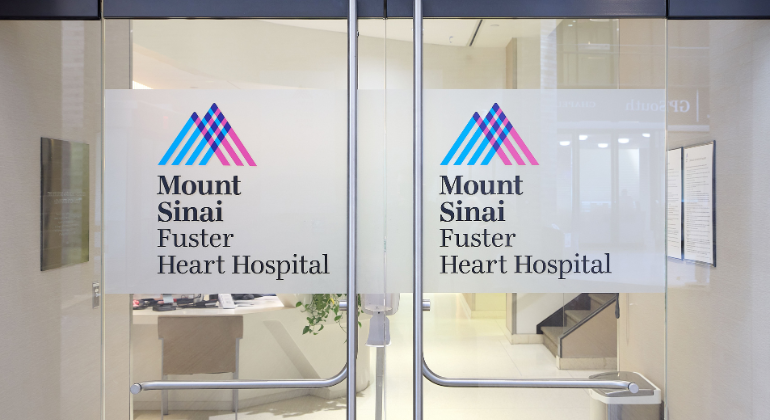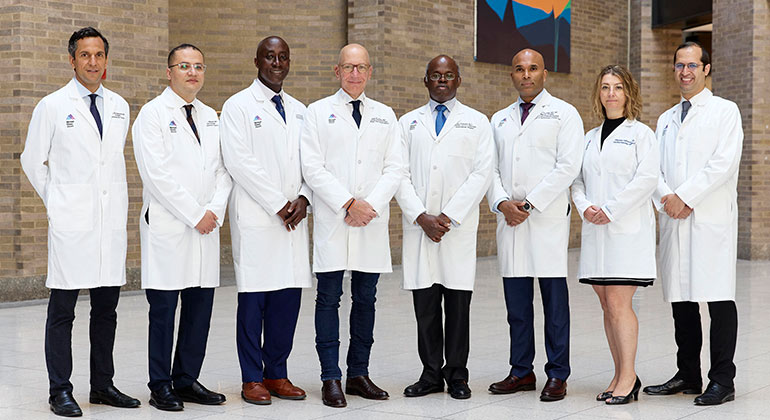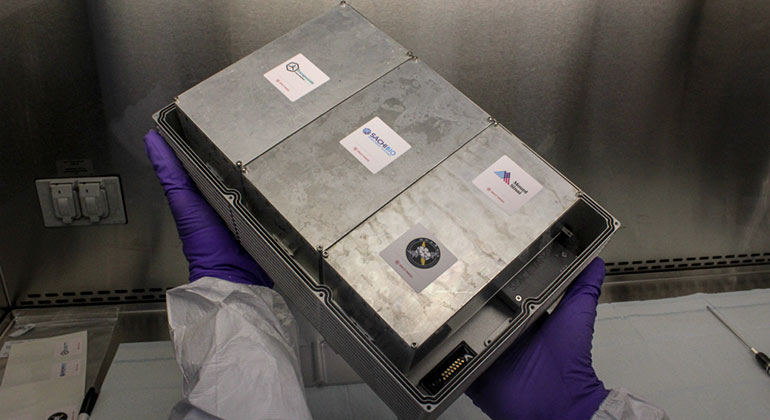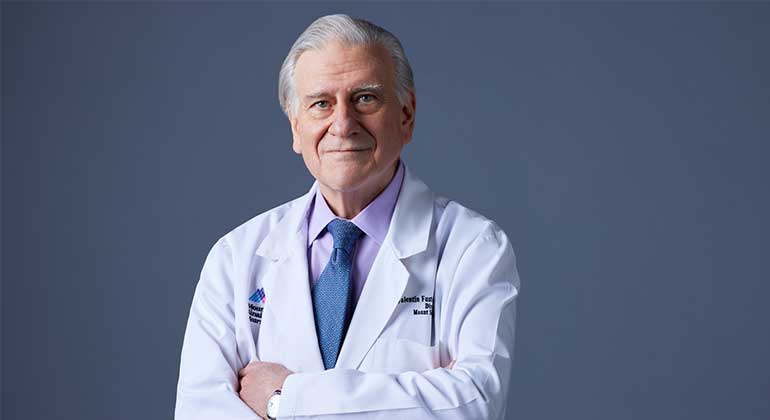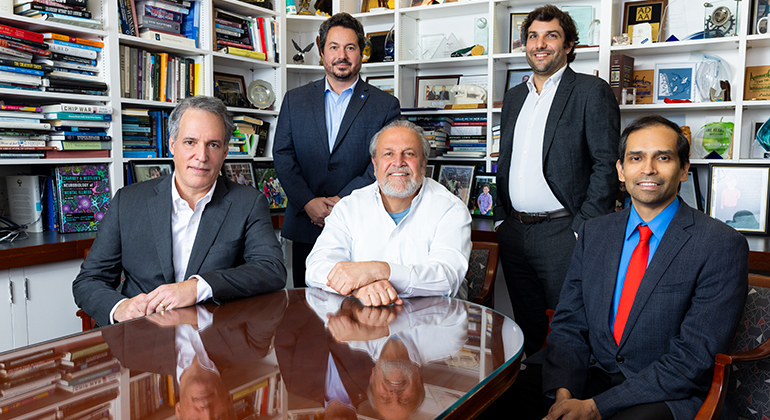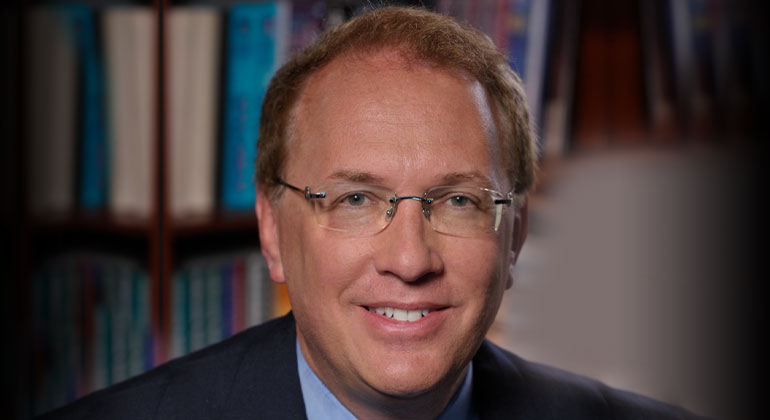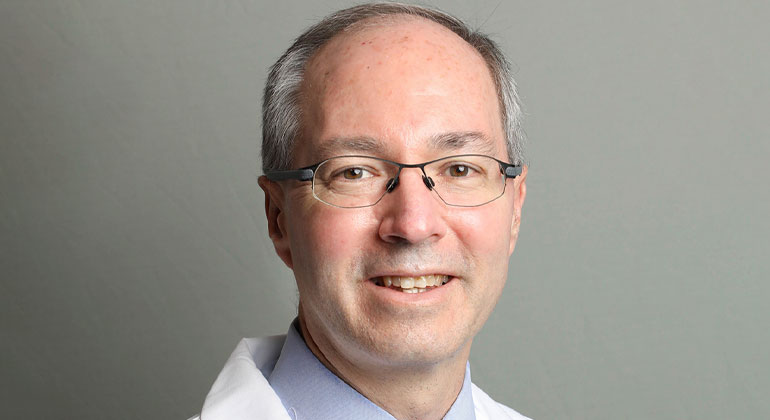Minimally Invasive Cardiac Procedure Sees Reduced Mortality Rate for Fifth Straight Year
Mount Sinai Hospital's Cardiac Catheterization Laboratory has continued success in lowering the rate of in-hospital mortality following percutaneous coronary interventions.
For the fifth consecutive year, The Mount Sinai Hospital Cardiac Catheterization Laboratory succeeded in lowering the rate of in-hospital mortality and serious complications following percutaneous coronary intervention (PCI). This continuous decline has occurred alongside a steadily increasing patient volume.
"We’re No. 1 because we have a very high patient volume with an unprecedented patient outcome rate," says Samin K. Sharma, MD, Director of the Cardiac Catheterization Laboratory. "The impressive results can also be attributed to exceptional teamwork."
PCI is a minimally invasive technique used to treat patients with diseased coronary arteries caused by a buildup of plaque and cholesterol. During the procedure, a catheter is threaded from an artery in the groin to an occluded vessel in the heart, and a stent is usually inserted to open up the blockage.
Data collected by the New York State Department of Health show that deaths from PCI decreased from .26 percent in 2005 to .16 percent in 2009, an unprecedented success considering the type of complex cases Mount Sinai physicians routinely treat, Dr. Sharma says. The recent data also illustrate that other complications of PCI, such as heart attack, urgent coronary bypass surgery, and stroke, decreased between 2008 and 2009. The number of catheterization procedures, including PCIs, also rose during that timeframe, an overall increase in volume from 16,215 to 18,348 between 2008 and 2009.
Dr. Sharma and Annapoorna S. Kini, MD, Associate Director of the Catheterization Laboratory, attribute the outstanding outcomes data to Mount Sinai’s reputation for delivering superior cardiovascular care to the technical experience of interventionalists. The hospital’s first-class outreach programs and affiliate partnerships, as well as patient education programs, also increase quality of care.
"Our team is able to dispense top-notch care to cardiac patients at Mount Sinai by rapid completion of patient procedures, attention to minute details of patient care, establishing protocols by team work, and an open discussion policy among clinical staff," Dr. Sharma adds.
Patients treated at Mount Sinai experience better overall outcomes — a lower incidence of major complications — compared with other hospitals in the nation. Of 5,078 patients who underwent PCI at Mount Sinai, 5,070 went home, Dr. Sharma says.
About The Mount Sinai Medical Center
The Mount Sinai Medical Center encompasses The Mount Sinai Hospital and Mount Sinai School of Medicine. The Mount Sinai Hospital is one of the nation’s oldest, largest and most-respected voluntary hospitals. Founded in 1852, Mount Sinai today is a 1,171-bed tertiary-care teaching facility that is internationally acclaimed for excellence in clinical care. Last year, nearly 60,000 people were treated at Mount Sinai as inpatients, and there were nearly 450,000 outpatient visits to the Medical Center.
Mount Sinai School of Medicine is internationally recognized as a leader in groundbreaking clinical and basic science research, as well as having an innovative approach to medical education. With a faculty of more than 3,400 in 38 clinical and basic science departments and centers, Mount Sinai ranks among the top 20 medical schools in receipt of National Institute of Health (NIH) grants. For more information, please visit www.mountsinai.org.
About the Mount Sinai Health System
Mount Sinai Health System is one of the largest academic medical systems in the New York metro area, with 48,000 employees working across seven hospitals, more than 400 outpatient practices, more than 600 research and clinical labs, a school of nursing, and a leading school of medicine and graduate education. Mount Sinai advances health for all people, everywhere, by taking on the most complex health care challenges of our time—discovering and applying new scientific learning and knowledge; developing safer, more effective treatments; educating the next generation of medical leaders and innovators; and supporting local communities by delivering high-quality care to all who need it.
Through the integration of its hospitals, labs, and schools, Mount Sinai offers comprehensive health care solutions from birth through geriatrics, leveraging innovative approaches such as artificial intelligence and informatics while keeping patients’ medical and emotional needs at the center of all treatment. The Health System includes approximately 9,000 primary and specialty care physicians and 10 free-standing joint-venture centers throughout the five boroughs of New York City, Westchester, Long Island, and Florida. Hospitals within the System are consistently ranked by Newsweek’s® “The World’s Best Smart Hospitals, Best in State Hospitals, World Best Hospitals and Best Specialty Hospitals” and by U.S. News & World Report's® “Best Hospitals” and “Best Children’s Hospitals.” The Mount Sinai Hospital is on the U.S. News & World Report® “Best Hospitals” Honor Roll for 2025-2026.
For more information, visit https://www.mountsinai.org or find Mount Sinai on Facebook, Instagram, LinkedIn, X, and YouTube.
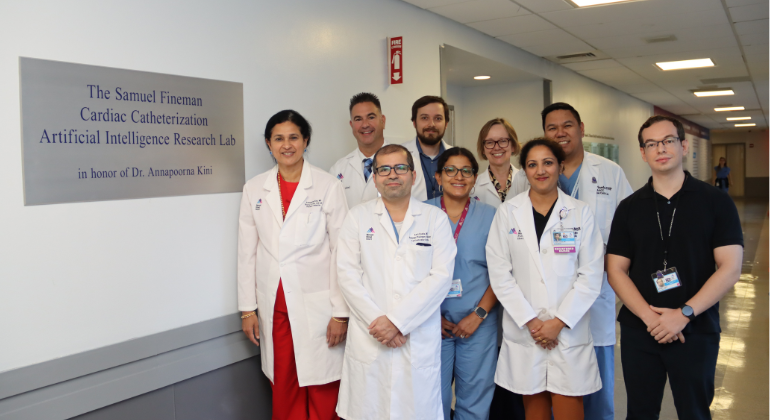
Mount Sinai Launches Cardiac Catheterization Artificial Intelligence Research Lab
Sep 15, 2025 View All Press Releases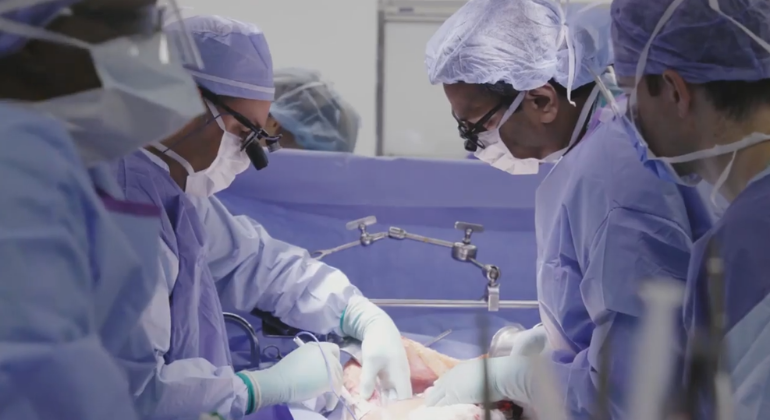
Mount Sinai Surgeons Perform First Heart-Liver-Kidney Transplants in New York State
May 20, 2025 View All Press Releases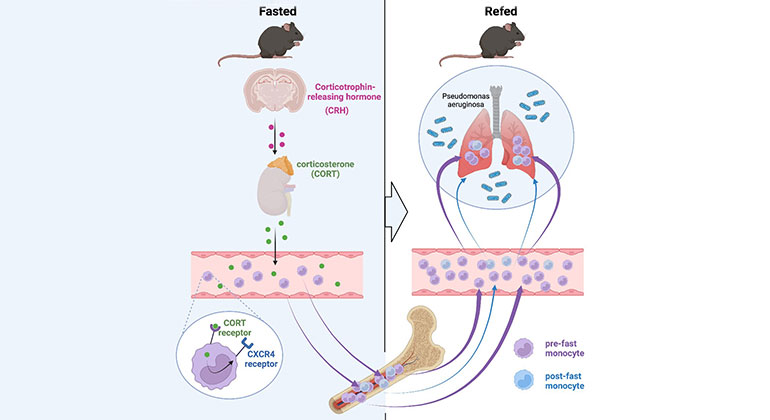
Skipping Breakfast May Compromise the Immune System
Feb 23, 2023 View All Press Releases